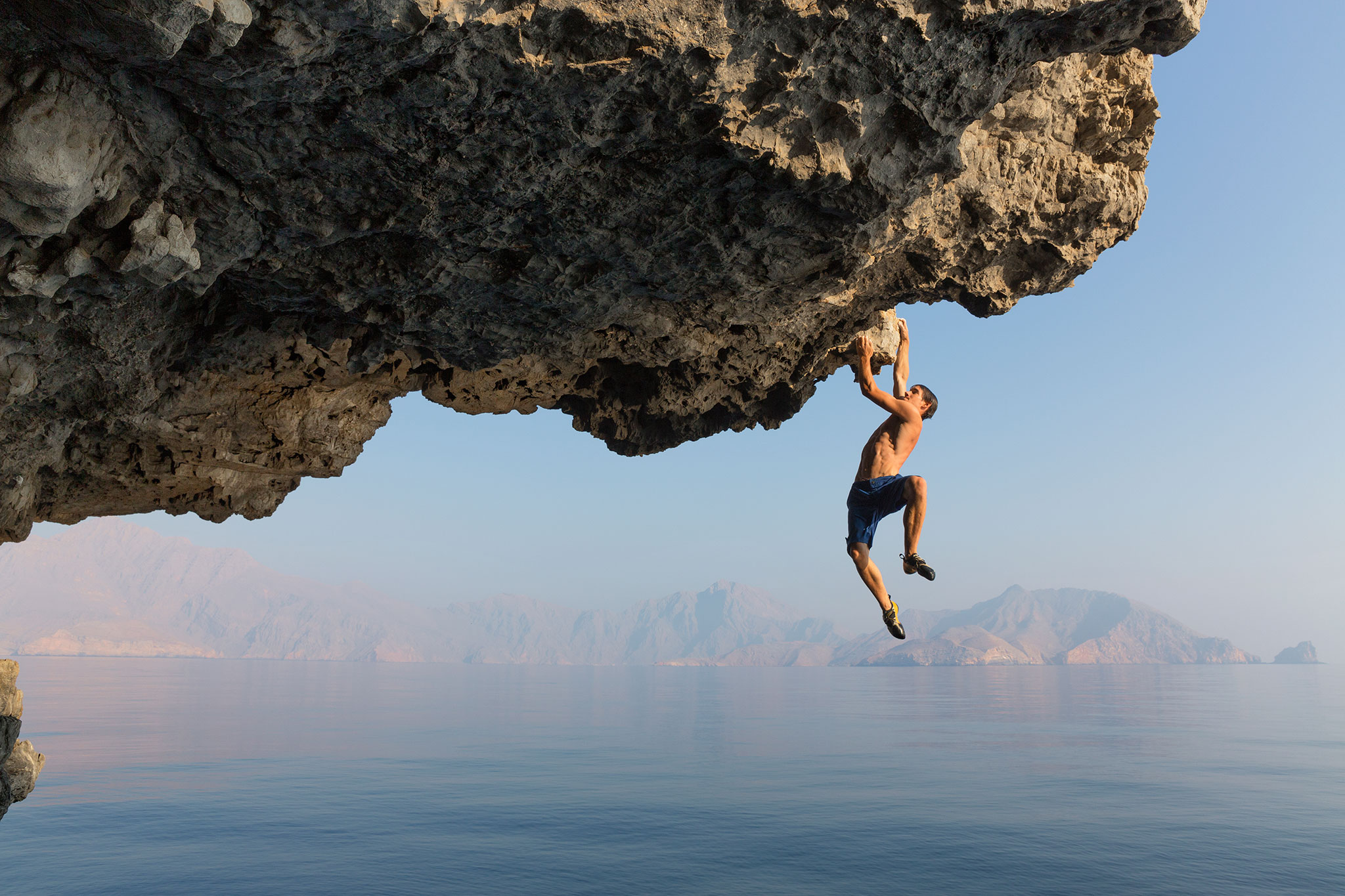How Rock Climbing Provides a Rigorous Full-Body Workout.

Anyone who has ever engaged in rock climbing or bouldering, the name for climbing on low rock formations without a rope, can testify to the strain the activity puts on the body. When positioned vertically, the muscles in your hips and torso strain to keep your lower body in place against the wall. Arching your back, you move one hand up to grasp on to the next hold - your thighs and calves leaving the sensation of a deep burn as they struggle with the pressure being exerted upon them. Eventually, as you lodge your hand into the next hold, the muscles that are close to giving up are relieved as the muscle group in focus shifts. The process is repeated methodically as you gradually scale the wall.
Exercise is fundamentally about engaging your muscles and asking said muscles to perform. Often we engage in exercise that focuses on one muscle group and neglects another, however there are few exercises that match climbing with regard to activating and training a diverse range of muscles. Climbing requires 'nearly the whole body's musculature' according to Jiří Baláš, a faculty researcher at Charles University in Prague. Compare that to swimming, running, or a typical gym routine, which teach the body to perform repetitive motions to either build strength or improve cardiorespiratory health - Climbing requires much more complex movement.
One of the beauty's of climbing is that each route is different, meaning the series of movements are endless and constantly vary. The dynamic muscle activation is highly challenging and fatiguing than simpler, repetitive movements. In addition to the pushing, pulling, and lifting involved, climbers use a significant portion of their aerobic capacity, meaning the activity will provide you with an excellent cardiovascular workout too. Your heart rate will increase relative to how hard you push yourself, but irrespective of your skill level your heart will get a workout if YOU find the climb challenging. The fear factor attached to climbing is also said to ramp up your heart rate serving to increase caloric expenditure.
Away from the two benefits mentioned above, research has established a connection between the balance-dependant movements used in climbing to an improvement in coordination and other motor skills. Among these are severe neurologic conditions such as multiple sclerosis and cerebral palsy. Tapping into the mental health sphere, it was found that just 8 weeks of bouldering can reduce the severity of depression by a significant amount.
If you've an interest in rock climbing and want to explore the activity further, artificial walls are a great way to start out and they cater for all abilities. There are multiple artificial walls dotted around Ireland, some featuring overhangs to really push climbers to their limits. With the correct harnesses and gear almost anyone can enjoy rock climbing and here at Zen Space we highly recommend you give it a go as soon as the pandemic loses momentum and the walls are back open for business.
